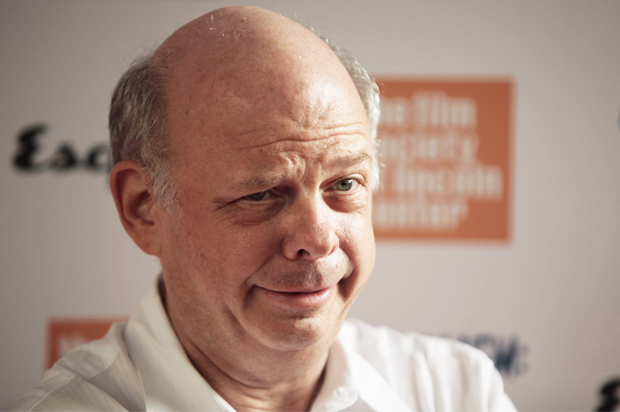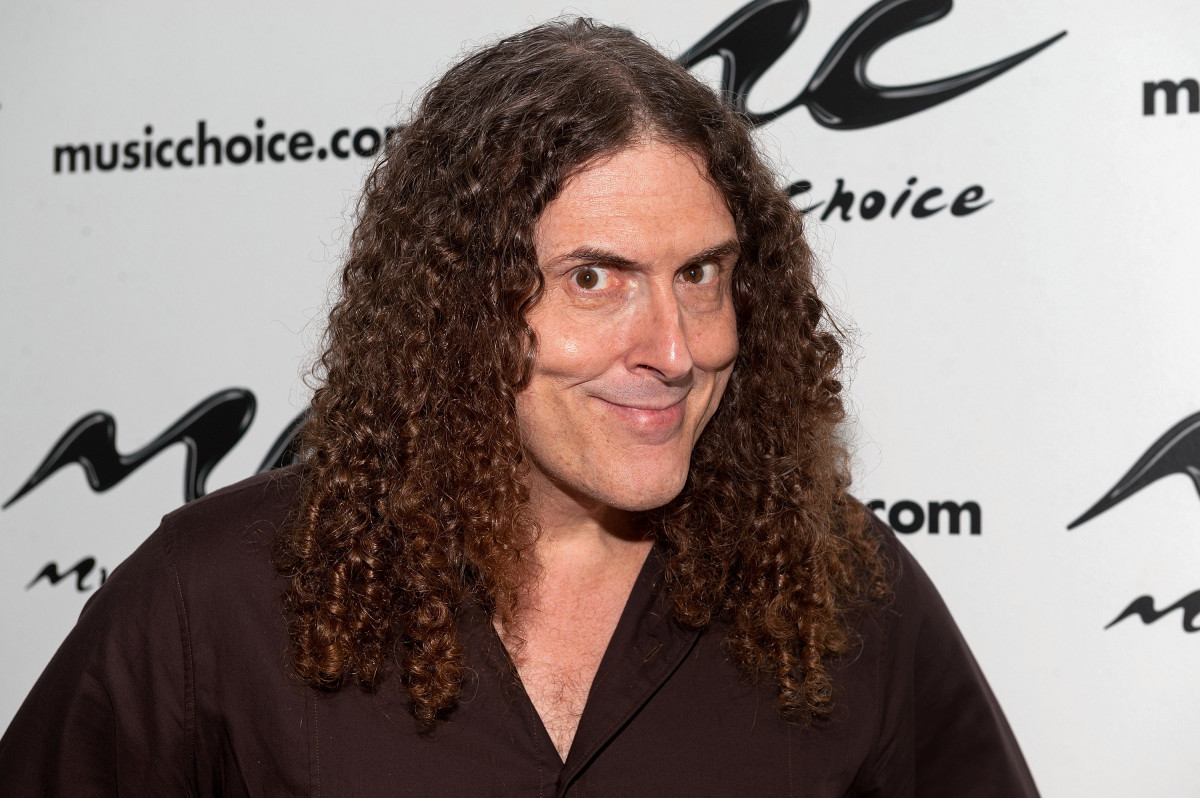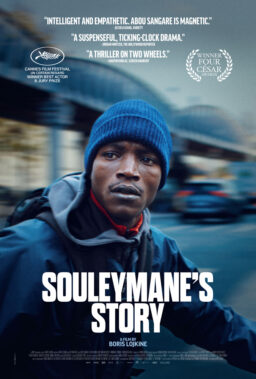1.
“Weird Al: Hitting Number 1 Doesn’t Change Plan to Stop Making Albums“: The beloved songwriting satirist chats with Time‘s Lily Rothman after his latest compilation, “Mandatory Fun,” became the first comedy album in 50 years to top the U.S. charts.
“‘I continue to think the same things that I thought prior to the album going to Number 1. I still think that albums for me are not the most efficient or intelligent way for me to present my music to the public,’ he says. ‘I would prefer to get my songs out in a more timely fashion.’ Being an artist who only releases singles just makes sense, he says, since he likes to parody songs when they’re still at the forefront of listeners’ minds. Especially given the perfect storm that YouTube is — helping music videos and comedy sketches get to viewers in a way that didn’t used to be possible — his goal is to capitalize on the technology as much as possible.”
2.

“Confidentially Yours“: The Believer‘s Anne Helen Petersen writes about “the banality of the celebrity profile and how it got that way.”
“Around 1920, the focus of the profile began to shift. Gradually, publications replaced the men of action and industry with sports figures and entertainers, related, either directly or indirectly, to leisure activities. These ‘idols of consumption’ amount, in Lowenthal’s somewhat jaundiced opinion, to ‘a caricature of a socially productive agent.’ Narratives focus on hobbies, food and drink preferences, and personal habits: President Taft ‘doesn’t smoke’; baseball player Hank Greenberg ‘lives modestly with his parents’; newspaperman Silliman Evans specializes in ‘large-scale outdoor entertainment.’ Details previously considered gauche—or, at the very least, relegated to the society columns—became prime profile fodder: the cost of parties, the provenance of furs, the exotic dinner courses, the ornate details of the celebrity’s home.”
3.

“Guy Walk Into a Bar“: The New Yorker‘s Simon Rich pens a brilliantly funny piece.
“So a guy walks into a bar one day and he can’t believe his eyes. There, in the corner, there’s this one-foot-tall man, in a little tuxedo, playing a tiny grand piano. So the guy asks the bartender, ‘Where’d he come from?’ And the bartender’s, like, ‘There’s a genie in the men’s room who grants wishes.’ So the guy runs into the men’s room and, sure enough, there’s this genie. And the genie’s, like, ‘Your wish is my command.’ So the guy’s, like, ‘O.K., I wish for world peace.’ And there’s this big cloud of smoke—and then the room fills up with geese. So the guy walks out of the men’s room and he’s, like, ‘Hey, bartender, I think your genie might be hard of hearing.’ And the bartender’s, like, ‘No kidding. You think I wished for a twelve-inch pianist?’”
4.

“‘Galaxy Quest’: The Oral History“: MTV‘s Jordan Hoffman tells the untold story of the 15-year-old cult comedy classic. By Grabthar’s Hammer…what a treat!
“‘Galaxy Quest’ was only a modest success in theaters (pulling in $71 million at the domestic box office). Over time, however, it has become a cult favorite – a film virtually everyone loves, one of those flicks you see when flipping channels and immediately get caught in its tractor beam. (Not that the movie has tractor beams – that would be too close to ‘Star Trek.’) In honor of the almost 15th anniversary of the movie (it was released in December, 1999), MTV News checked back in with the entire cast and creators of ‘Galaxy Quest’: Tim Allen as the obnoxious Captain; Alan Rickman as the humiliated thespian relegated to rubber makeup; Sigourney Weaver, an actress given nothing to do but show her cleavage; Daryl ‘Chill’ Mitchell, the former child star. Tony Shalhoub, playing a stoner who is supposed to be the sharp chief engineer; Sam Rockwell as some guy named Guy; and many, many more. What we came away with is, in the cast and crew’s own words, the story of how the crew of the Protector came together – and how things changed as the movie grew to be the phenomenon it is today.”
5.

“Wallace Shawn: ‘I wish people knew me as a radical playwright instead [of] for ‘The Princess Bride’“: Salon‘s Andrew O’Hehir has a candid chat with the inconceivably talented actor/playwright.
“The allure of Ibsen is so great to me that I don’t know how to begin, really. André and I actually met because in 1970, André wanted me to adapt and cut Ibsen’s ‘Peer Gynt’ for his company of actors. That was something I utterly failed at, but the association remained. And after we finished doing ‘Uncle Vanya,’ I said to André, ‘I would like to do something of Ibsen’ and he said, ‘Well, let’s do ‘A Master Builder.’’ For me — I keep trying to explain to myself why Ibsen is so thrilling to me, as he was to James Joyce and others. Joyce actually learned Norwegian in order to read Ibsen. Ibsen was only interested in the most important and intense aspects of life. He seems to have an uncanny ability to write very believably, while leaving out the mechanical and trivial aspects of life, and to deal only with the most intense subjects. And to deal with them so that every line is somehow what would be the climax in other people’s writing. And that’s just a normal page for Ibsen.”
Image of the Day

Slant Magazine‘s Calum Marsh writes passionately about “The 10 Best Woody Allen Movies” until Allen himself materializes on the page and protests, “You know nothing of my work!” (just kidding)
Video of the Day
After
taking the Internet by storm with his “Boyhood“/”Planet of the Apes”
mash-up, Nelson Carvajal explores the cinematography of Richard
Linklater in his latest unmissable video essay for Press Play.












